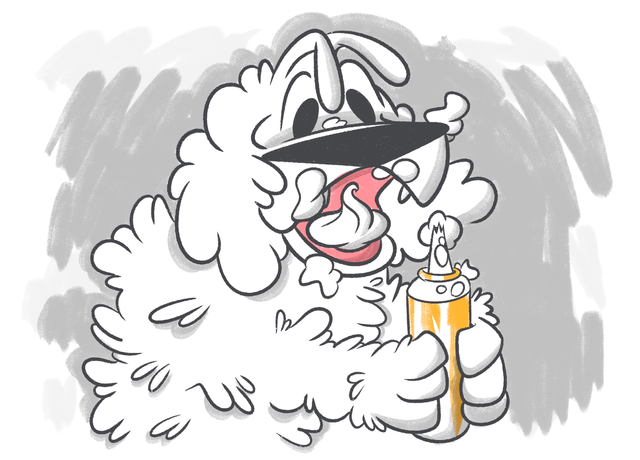When you see a dog foaming at the mouth, it's natural to be alarmed. After all, we often think that frothy white saliva dripping from their jaws is a sign that a dog is crazed, aggressive, or even infected with rabies.
Stop Googling - Ask a Real Vet
Foaming at the mouth in dogs is a product of what medical sources call excessive salivation (or hypersalivation) and can mean a serious underlying health issue. This article will delve into the various causes of dogs foaming at the mouth, including infections like rabies, hypersalivation triggers, dental disease, seizures, poisoning, and heatstroke, and what you need to do about it.
Content:
- 9 Causes of Foaming at the Mouth in Dogs
- Puppy vs Senior Dog Drooling at the Mouth
- My Dog is Vomiting White Foam and Shaking
- Is a Dog Foaming at the Mouth Dangerous
- What to Do If Your Dog is Foaming at The Mouth
- Final Thoughts
9 Causes of Foaming at the Mouth in Dogs
Dogs foam at the mouth when they produce excessive drool but fail to swallow it while panting. The rapid breathing pushes air through the saliva, creating a white froth around their mouths. This means that any condition causing excessive drooling and panting can result in foaming at the mouth.
Therefore, it's essential to consider other symptoms and clues when assessing the cause of the foaming, as numerous factors can contribute to this symptom. A Petcube Camera can be a valuable tool for observing your dog's behavior and symptoms when you are not home. This way, you can pick up on issues like a foaming mouth, which can be a lifesaver for conditions where acting fast can be the difference between life and death.
It can help you notice signs like foaming at the mouth and alert you to potential issues that require veterinary attention. So let's look at the most common causes.
Excessive Drooling Triggers
Dogs may drool excessively due to nausea caused by dietary indiscretions, gastrointestinal issues, or certain medications. Another common cause is motion sickness when dogs are in a car. Likewise, intense physical activity or stressful situations can cause dogs to pant heavily (including excitement), leading to excessive drooling and froth around the mouth.
Another common reason is severe stress and anxiety. Rapid panting is often a sign of a panicked dog, and if they are drooling, you will see a lot of foam around the mouth. You may see this during thunderstorms or other scary experiences.
Similarly, a severe injury or trauma can also cause foam around the mouth when a dog is in pain or distressed.
Dental Diseases and Conditions
Pain and inflammation in the mouth due to dental issues can trigger hypersalivation and mouth foaming in dogs. Studies show that dental diseases like periodontitis and gingivitis are extremely common in dogs and can contribute to other diseases like heart problems or diabetes.
Other issues in the mouth and throat can also be behind this problem, including tonsillitis, irritation in the esophagus (throat), or injuries. Research shows many conditions in the mouth and throat (and even the digestive tract) can cause hypersalivation or ptyalism. This is when the body produces too much drool, which in turn can lead to foamy saliva dripping from the mouth.
An abscess or other blockage in the oral cavity, throat, or esophagus can cause excessive drooling. This may occur due to infections or foreign bodies obstructing the normal flow of saliva.
Tumors or other disorders affecting the salivary glands can disrupt normal saliva production and cause excessive drooling as well. These conditions may include salivary gland tumors, sialadenitis (inflammation of the salivary glands), or salivary gland stones.
Physical abnormalities in a dog's mouth can also cause frothing.
Viral Infections
Rabies is a viral infection that affects the central nervous system and is famous for foaming in dogs' mouths. But it's not the only dangerous virus. Other infectious diseases, such as canine distemper or tetanus, can also cause excessive salivation.
Seizures and convulsions
Some dogs may experience seizures, manifesting as abnormal movements, loss of consciousness, and foaming at the mouth. Research suggests that seizure-induced hypersalivation occurs due to increased saliva production during the episode.
In these cases, you may be looking at one of many neurological problems, from epilepsy to strokes or hydrocephalus (fluid building up in the brain).
Poisoning
Ingestion of toxic substances, such as certain plants, household chemicals, medications, or certain foods, can cause dogs to foam at the mouth. Toxic reactions often stimulate excessive salivation as the body's defense mechanism.
Heatstroke
Many dogs are prone to overheating, especially in hot and humid conditions. Some breeds, such as those with heavy flews (upper lips) like mastiffs or short noses (like pugs), struggle to maintain a normal body temperature and can overheat quickly.
Heatstroke can lead to excessive drooling and foaming at the mouth as the body tries to cool itself down.
Allergic reactions

Allergic reactions, or anaphylaxis, can trigger excessive drooling and mouth foaming. If your dog has a severe allergic reaction, it's best to get to the vet immediately. CAB studies show that most dogs make a full recovery from anaphylactic shock if they get to the vet quickly.
Metabolic disorders
Conditions such as hepatic encephalopathy or kidney failure can lead to changes in saliva production and composition, resulting in abnormal drooling.
Hepatic encephalopathy in dogs is a neurological condition resulting from liver dysfunction or liver failure. The liver plays a crucial role in filtering toxins from the blood, and when it becomes compromised, toxic substances accumulate in the body, including ammonia.
Elevated ammonia levels in the body affect the brain, leading to neurological symptoms. These can include disorientation, altered behavior, seizures, drooling, and, in severe cases, coma.
Puppy vs Senior Dog Drooling at the Mouth
In puppies, teething is a common cause of increased drooling, which may lead to foaming at the mouth. For senior dogs, excessive drooling may indicate more severe health issues such as dental problems, oral infections, or systemic diseases.
Consulting a veterinarian is crucial in these cases to determine the underlying cause and provide appropriate treatment.
My Dog is Vomiting White Foam and Shaking
In some cases, dogs may exhibit additional symptoms, such as vomiting white foam, shaking, and foaming at the mouth. There can be many reasons for this, including gastrointestinal issues, dietary indiscretions (eating something bad), or underlying medical conditions.
Typically, a dog throws up white foam when there is a severe stomach problem. The foam, or froth, in the vomit, comes from gas in the stomach that mixes with the stomach acids. It may be serious if your dog is vomiting white foam and shaking. The shaking can indicate something such as a toxin or poison attacking the nervous system.
A veterinary evaluation is necessary to identify the specific cause and provide appropriate care.
Is a Dog Foaming at the Mouth Dangerous
Dogs that foam at the mouth are rarely dangerous to others unless they are carrying a contagious disease like rabies. Mostly, frothy white drool is no more than a sign of nausea or fear. But context is everything since the causes of foamy mouths range from mild to severe; in many cases, a dog may have a condition that is dangerous to themselves (like kidney failure).
So, if you suspect a behavioral problem like noise phobia or a medical condition, it's best to see a vet to get to the root of the problem.
What to Do If Your Dog is Foaming at The Mouth

If you notice your dog foaming at the mouth, it's essential to take the following steps:
Ensure safety
Assess the immediate environment to ensure your dog is not in danger. Move them away from hazards such as toxic substances, sharp objects, or busy roads.
Evaluate the situation
Try to determine the cause of the foaming. Was your dog exposed to a potential toxin? Are they nervous about loud noises, or have they been active in the heat of the day? Did they have a recent injury or seizure? Understanding the context can help you communicate relevant information to the veterinarian.
Contact your veterinarian
Call your veterinarian or an emergency veterinary clinic as soon as possible. If you can't leave immediately, use the Petcube Emergency Fund 24/7 online vet service for help. Explain the situation, describe your dog's symptoms, and follow their guidance. They will be able to provide specific advice based on the case and guide you on the next steps to take.
Monitor your dog
While waiting for veterinary assistance, carefully observe your dog's behavior and note any additional symptoms they may be experiencing. This information can be helpful for the veterinarian's evaluation.
Do not attempt to treat on your own
It's crucial to administer medications or home remedies with proper veterinary guidance. The underlying cause of the foaming at the mouth needs to be accurately diagnosed to provide appropriate treatment.
In emergencies, you can consider resources like the Petcube Emergency Fund, which provides financial coverage for up to $3000 in emergency vet bills and offers a 24/7 online vet team for quick assessments.
Final Thoughts
Foaming at the mouth in dogs can stem from various causes, and understanding the potential triggers is essential for proper diagnosis and treatment. Pet cameras can aid in monitoring your dog's behavior, and recognizing the mechanics behind foaming at the mouth can help you look for additional clues.
Recognizing the differences in drooling between puppies and senior dogs and understanding the implications of vomiting white foam and shaking is essential.
Suppose you see your dog foaming at the mouth for no obvious reason, like excited panting. In that case, it is best to consult a veterinarian for a comprehensive evaluation and guidance on the appropriate steps for your pet's well-being.
Was this article helpful?
Help us make our articles even better









